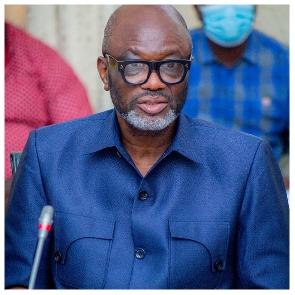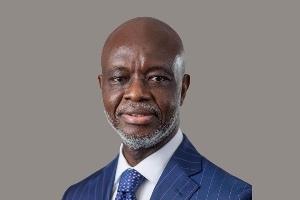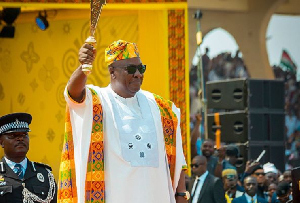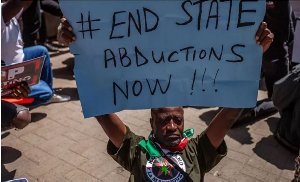Dr Joseph Obeng, President of The Ghana Union of Traders Association (GUTA), has called on government to ensure fair and equitable taxes for all citizens.
He said the taxation system carried by the Ghana Revenue Authority (GRA) was making some businesses not to comply due to inequalities.
He said this at a national stakeholders forum on tax equity in Ghana in Accra. The forum was on the theme: “Promoting Tax Equity In Ghana – The Role Of Key Stakeholders.”
He said the tendency where some businesses pay a rate of 22 per cent, others a rate of 4 per cent while others are exempted from paying because of not meeting the threshold of GH¢200,000 worth of goods as unfair and unjustified.
“The consumer has the discretion of buying what he or she wants, the one paying 22 per cent VAT and those paying 4 per cent VAT stand at a disadvantage since their goods are likely to be priced high while those not paying any VAT at all sell at affordable prices and are able to make good sales,” he noted.
Mr Obeng said government must implement policies to restructure the Value Added Tax (VAT) to ensure full compliance.
“To increase productivity, we must reduce taxes to compete with other developed countries,” he said.
He said artisans, carpenters, mechanics, tailors and electricians must also pay taxes for more revenue income.
He said the few entitled to pay were also being taxed more than their output, leading to low revenue.
Dr Obeng urged government to widen the tax net to rake in revenue from businesses, which hitherto did not pay taxes.
According to him this would enable government harness enough revenue for national development, adding that barely 4 million out of 13 million are paying VAT.
“We need to find innovative ways of bringing a lot more people to comply with their tax obligations, failure to do that enforces discrimination,” he stated.
Dr Alex Ampaabeng, Senior Programmes Officer, International Budget Partnership (IBP), noted that the current system where only a fraction of the population pays taxes was a disincentive to others and prevent them from paying taxes.
He said government must put in place the right programmes and systems to ensure that there was a parity in the payments of taxes.
He said available statistics indicated that the number of persons in the informal sector who paid taxes was low, causing nuisance to tax equity.
Mr Ampaabeng called on Civil Society Organizations (CSOs), to play a crucial role in fair and equitable taxation by advising and engaging key stakeholders.
He bemoaned the idea of taxing only the poor and needy who only make a tiny fraction from their own businesses.
He urged government to collaborate and elevate to effective digital taxation, adopting policies to ensure online workers are taxed as well.
“Government should tag with the riding apps like Uber, Bolt, and Yango to ensure payment of taxes and also to ensure safety cybercrime,” he added.
The Forum saw discussions on how different stakeholders’ could work harmoniously to promote tax equity in Ghana, and enhanced civil society relationship to engage different actors for tax equity and also Identified key priority areas for civil society organizations to impact tax equity efforts in Ghana.
Business News of Tuesday, 26 December 2023
Source: GNA

















